Affordable units and height slashed at proposed Brooklyn Botanic Garden-bordering towers
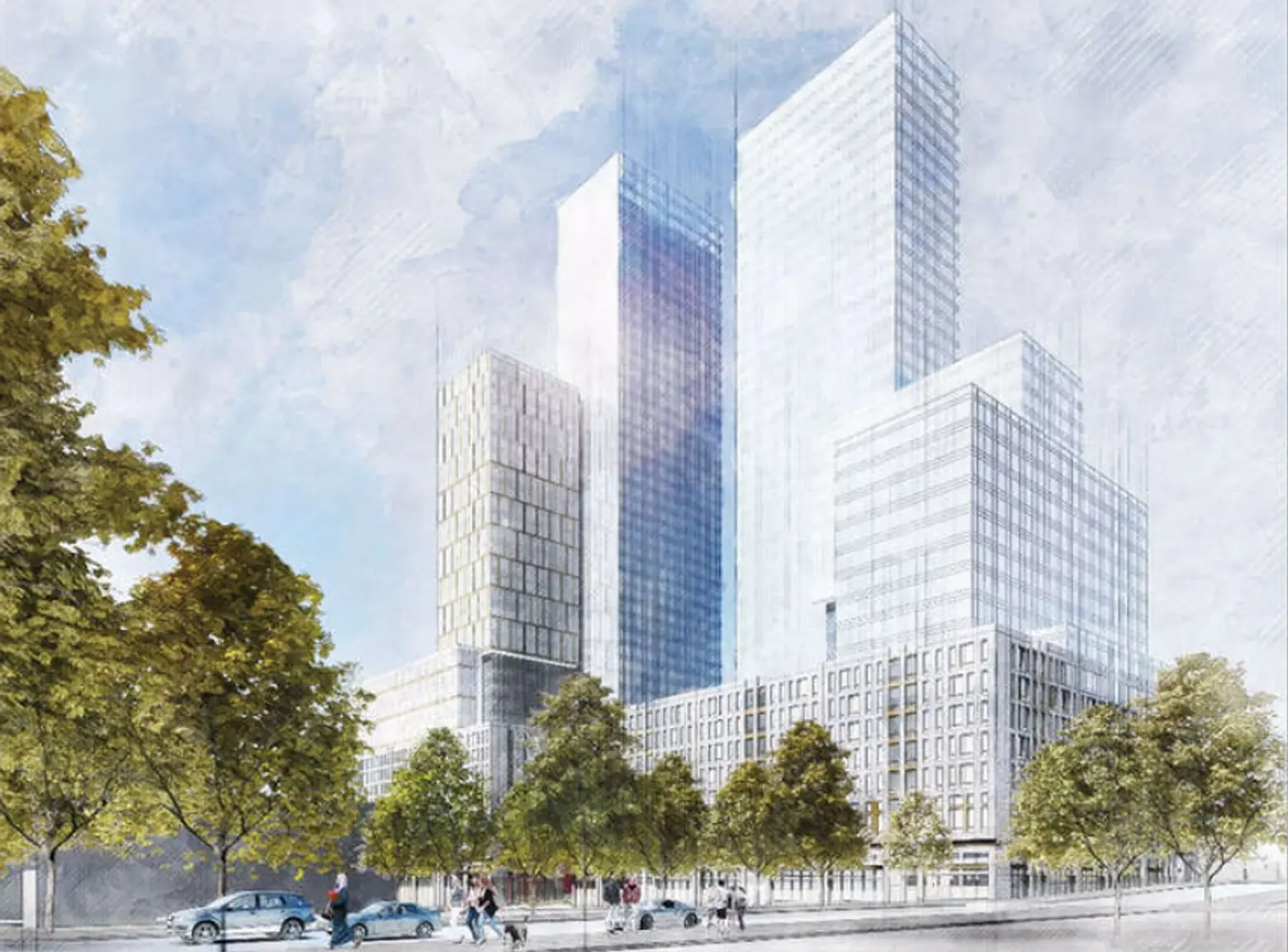
Rendering: NYC Department of City Planning
The developers behind a controversial proposal to build a pair of high-rise towers in Crown Heights next to the Brooklyn Botanic Garden have put forth a revised plan that would slash the building height and the number of affordable units offered. As first reported by The City, Continuum Company and Lincoln Equities launched a new project website that describes a 17-story residential building at 960 Franklin Avenue as an alternative to the 34-story project currently under review by the city.
Instead of two 34-story towers with 1,578 total units with 50 percent, or 789 affordable units, affordable, the revised pitch from the developers outlines a 17-story complex with 279 affordable apartments, which works out to be 25 percent of the total 1,170 rental units.
Current zoning rules in the neighborhood cap building heights at 75 feet, requiring zoning changes for the current project to move forward. On the new project website, Continuum Company said if the rezoning for 960 Franklin is not approved, they plan on constructing an as-of-right residential tower that complies with current zoning rules.
The developer said this would result in a 518-unit condo building with no affordable housing units and with all residences priced at market rate.
Brooklyn Botanic Garden President Adrian Benepe told The City that the developers did not provide garden officials with this alternative proposal. “That’s been the modus operandi, the m.o., of this developer the entire time,” Benepe told The City. “They developed a plan in a vacuum without contemplating the impacts not just on the garden but on the entire community.”
Garden officials have fought against the proposal since it was first announced in 2019, claiming the buildings would block necessary light from shining on its greenhouses. And in December, Mayor Bill de Blasio, whose approval is key for the project, said he opposed the development, calling it “grossly out of scale with the neighborhood.”
As 6sqft previously reported, garden officials say the development, planned for the site of a former spice factory about 200 feet from the garden, could affect 20 percent of its plant collection, including endangered and extremely rare orchids, cacti, and bonsai trees. A draft environmental impact statement released last month showed the development would cast shadows on the garden for a few hours per day in the morning.
The City Planning Commission certified the rezoning application earlier this month, which marks the official start of the city’s uniform land use review procedure (ULURP). The proposal then will be reviewed by the local community board, the borough president, and the City Planning Commission.
Despite the certification, Planning officials said the proposal will likely not move forward, as Patch first reported.
“Although the department finds the application is technically complete and thus ready to certify, I want to assure the commission that department staff have repeatedly conveyed…concerns to the private applicant,” Marisa Largo, director of the Department of City Planning, said during a February 1 meeting, according to Patch. “Let me be clear, the department does not support this private application.”
City Council Speaker Corey Johnson and Majority Leader Laurie Cumbo this month issued a joint statement of opposition. “We share the concerns raised by the City Planning Commission today and urge Continuum to drop this proposal and instead work towards a viable project that addresses Crown Heights’ needs for affordable housing and community services while respecting neighborhood character and our beloved institutions like the Botanic Garden.”
In a statement to 6sqft on Wednesday, a spokesperson for Continuum said they will continue to seek the rezoning. “With so many people currently rent-burdened and potentially at risk of housing instability, we believe it is in the best interest of the neighborhood and the City to maximize the number of affordable and workforce units. This project will be union built and serviced, and not only has labor support, it also has labor investment, and a significant portion of the housing units would likely go to union households.”
[Via The City]
RELATED:
Interested in similar content?
Leave a reply
Your email address will not be published.
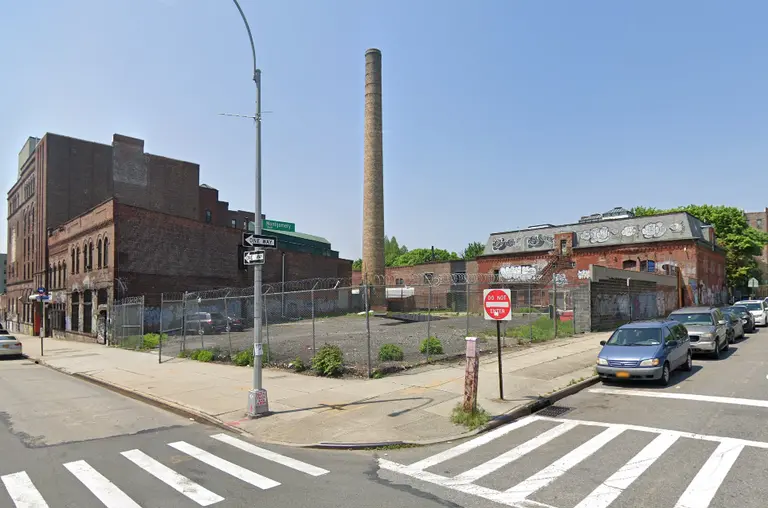
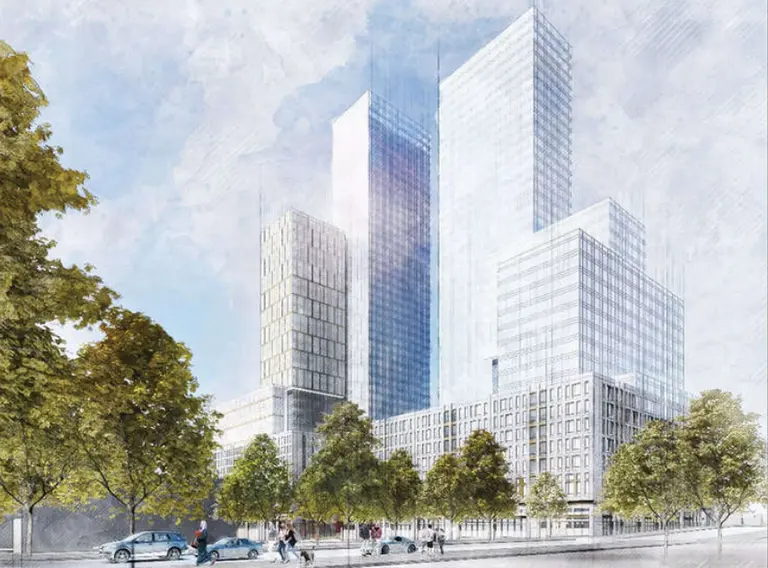
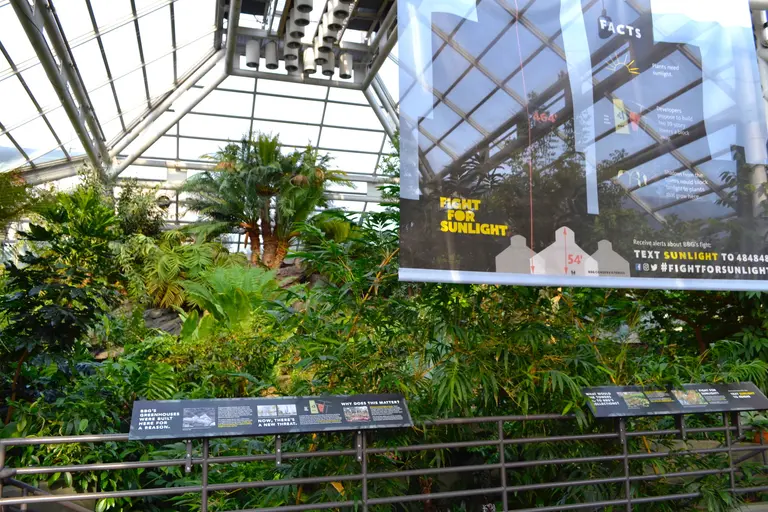







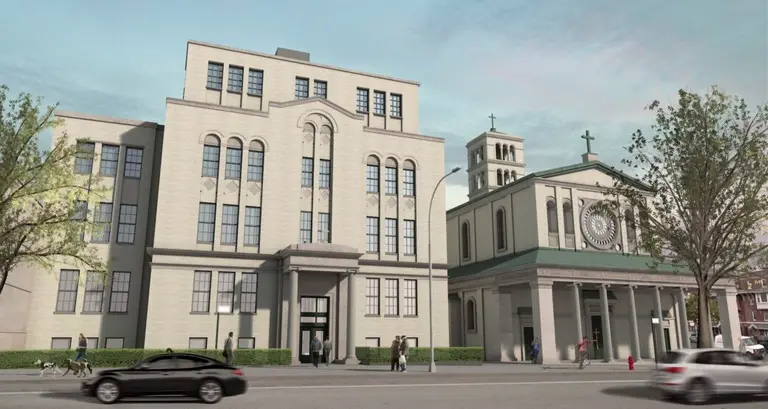
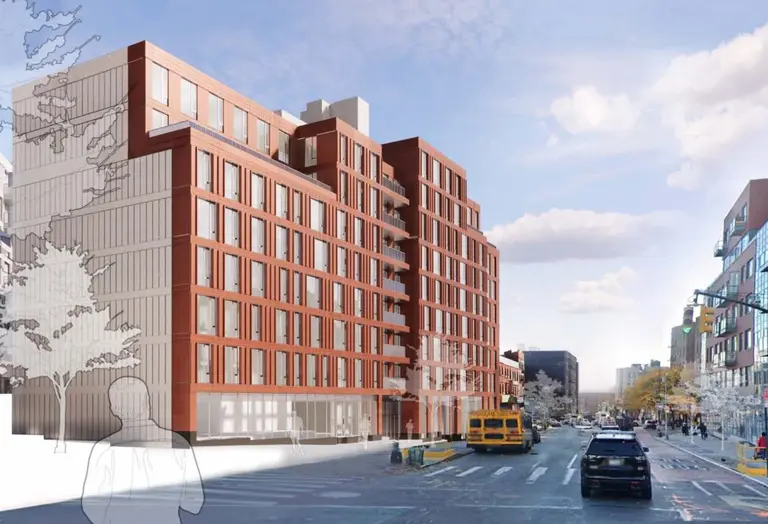
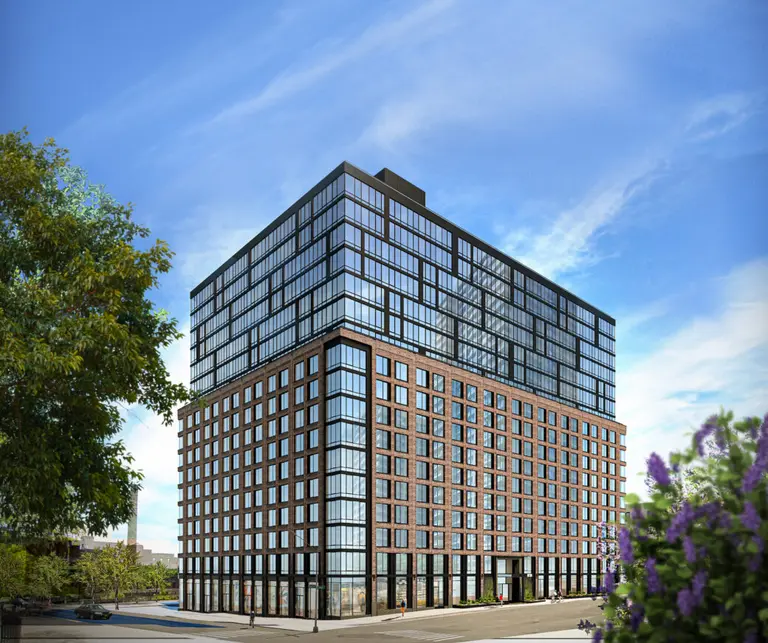
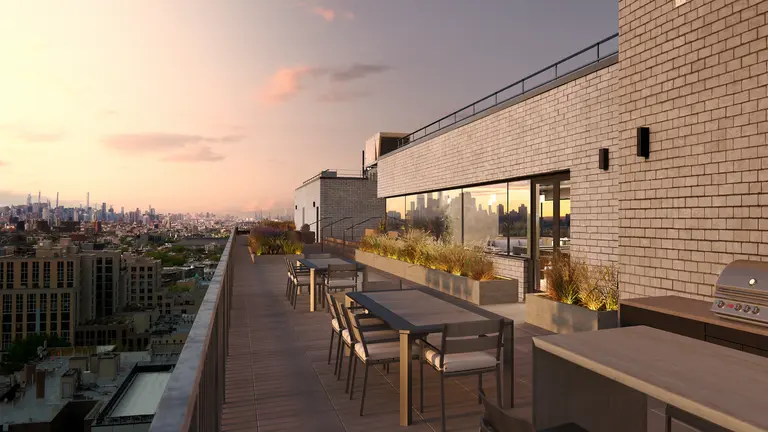
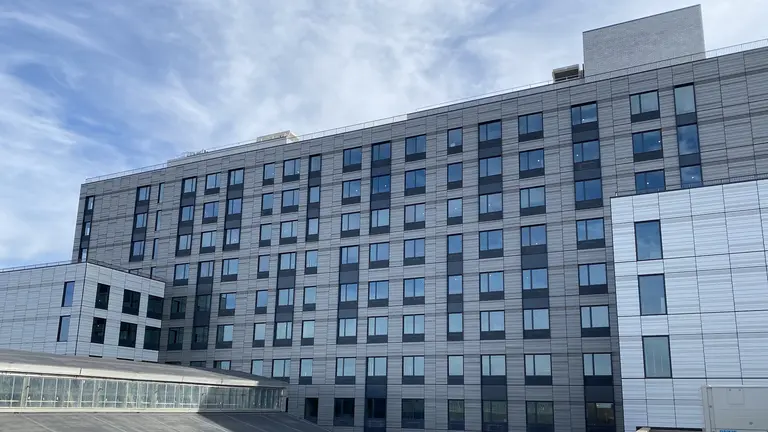












Franklin ave needs to build up for truly affordable housing, not more condos are market rate apartments, the real estate developers can build truly affordable housing without threaten if they can’t get there way by only building unaffordable apartments